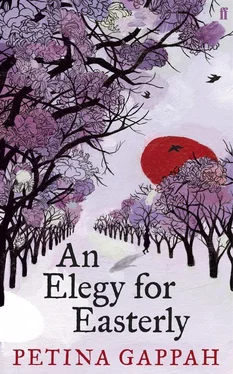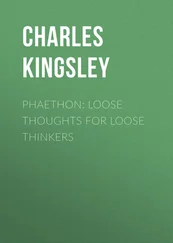Petina Gappah - An Elegy for Easterly
Здесь есть возможность читать онлайн «Petina Gappah - An Elegy for Easterly» весь текст электронной книги совершенно бесплатно (целиком полную версию без сокращений). В некоторых случаях можно слушать аудио, скачать через торрент в формате fb2 и присутствует краткое содержание. Год выпуска: 2009, Издательство: Faber & Faber, Жанр: Современная проза, на английском языке. Описание произведения, (предисловие) а так же отзывы посетителей доступны на портале библиотеки ЛибКат.
- Название:An Elegy for Easterly
- Автор:
- Издательство:Faber & Faber
- Жанр:
- Год:2009
- ISBN:нет данных
- Рейтинг книги:4 / 5. Голосов: 1
-
Избранное:Добавить в избранное
- Отзывы:
-
Ваша оценка:
- 80
- 1
- 2
- 3
- 4
- 5
An Elegy for Easterly: краткое содержание, описание и аннотация
Предлагаем к чтению аннотацию, описание, краткое содержание или предисловие (зависит от того, что написал сам автор книги «An Elegy for Easterly»). Если вы не нашли необходимую информацию о книге — напишите в комментариях, мы постараемся отыскать её.
An Elegy for Easterly — читать онлайн бесплатно полную книгу (весь текст) целиком
Ниже представлен текст книги, разбитый по страницам. Система сохранения места последней прочитанной страницы, позволяет с удобством читать онлайн бесплатно книгу «An Elegy for Easterly», без необходимости каждый раз заново искать на чём Вы остановились. Поставьте закладку, и сможете в любой момент перейти на страницу, на которой закончили чтение.
Интервал:
Закладка:
Just when I think that I cannot take any more, the phone call comes that promises that this time Peter really will be on the Friday morning flight. Mai Lisa takes it upon herself to call back those relatives that had left. She insists that she come with us, for is it not her child who has made the arrangements? And anyway, she says, my mother is not in a fit state to go. But my mother insists on going with us and we cannot refuse her.
We make our way to the airport as we have done before, and wait with others as we have done before. The scenes are the same as the last time we were here, happy relations waiting for something nice from London. Jonathan doubts that Lisa really will come. So we expect Peter to be unaccompanied, and Jonathan identifies himself to the airline. Mai Lisa adds to the tension of the wait by mistaking every young woman of Lisa’s build for her daughter.
‘There she is, I see her, Lisa, Lisa, psst, here, Lisa’, only to have her waving arm fall to her side as she says, ‘Ahh, honestly, this is what old age does. I need glasses, surely. Ahh, there she is, Lisa, psst.’
But there is no Lisa among the passengers. Jonathan checks again with the airline, but there is nothing for us. He cannot find the words to tell us, and he only shakes his head. My mother begins to laugh, a sound that is worse than any crying.
Mai Lisa stands aside and studies the contents of a curio shop through the glass windows. All the while, I can see her stealing glances at my mother. As I watch her pretending interest in a zebra-skin rug, I feel rage so bitter that it is like bile in my mouth. I am unaware of the first hot tears that course down my cheeks. They are the first tears that I have shed, but I do not cry for him, they are tears of hatred for him and his miserable little life and what he has done to our family.
My mother’s moment of hysteria does not last and it gives way to her usual catatonia. She lets Jonathan and Mukai lead her away. Mai Lisa pants after us. ‘Not to worry,’ she says, ‘she will be on the next flight. The next flight, definitely.’ She mumbles theories that no one wants to hear. I try to shut out her voice, and concentrate so hard that I do not hear my name being called. A hand on my shoulder brings me back from myself. It is a woman in the faded green and beige livery of the national airline.
‘You are surely Mary Chikwiro,’ she says. ‘I have a picture of you here.’ Through my tears I see a picture of me with Lisa and Peter sitting beneath the mango tree outside our house, weeks before Lisa left for England. The woman smiles again and says, ‘I have something from your cousin Lisa. She said it was a special delivery, and didn’t want to have to go through customs.’
I blink away my tears but she is oblivious to my distress.
‘People send me with things, you know, nice things from London. I charge only fifty pounds per package. It’s a living, isn’t?’
She now seems to notice my mood and says quickly, ‘Here is the package. Enjoy.’ She smiles uncertainly as she thrusts the package into my arms.
I take the box and walk towards Jonathan who stands some metres apart from the women. We both look at the package wrapped in gaudy purple and silver paper and tied with purple ribbon. I open the box to reveal an urn of dark wood. Peter’s name is engraved on a brass plate on the lid. There is nothing to say. We follow my mother and Mai Lisa out to the car park.
In the Heart of the Golden Triangle
You hear your mother say to Mai Mufundisi that her daughter has a big, big house deep in the golden triangle. ‘Right in the heart of the golden triangle,’ you hear her say. In the golden triangle, you live a stone’s throw from the Governor of the Central Bank. In the street behind the French Ambassador’s residence, your house is next to the residence of the British High Commissioner. You try to remember that you are to call him the British Ambassador now, because your President pulled your country out of the Commonwealth.
Your maid brings you morning tea in bed. She says she did this with the British High Commissioner’s wife, remember to call him Ambassador. You drink your tea at leisure because you do not have to work. Your husband is the Director in the Treasury Department of a Big Merchant Bank. ‘We have branches all over Africa,’ their adverts say, ‘but our roots are here in Zimbabwe.’
You call your maid Joyce and she calls you Madam. You don’t admit this to anyone, even to yourself, but you employed her only because she worked for the British High Commissioner remember to call him the British Ambassador before he was asked to leave the country for stating the obvious in a country where the truth can be spoken only in the private chambers of the mind.
‘She makes flaky puff pastry that is as light as a feather,’ you say to your friends as you drink afternoon tea. They complain about their maids, and you listen and chime in with stories of maids that you have employed, maids that you have sacked and maids that have stolen from you.
‘Maidei stole my Ferragamo shoes,’ you say. This happened five years ago, but the incident still rankles. Joyce is not Maidei, she is coming along nicely, you think, you hope because you could not bear to go through another maid; you have been through thirty-five. After you drink the morning tea that she brings you, you get up, but you may as well lie in because in the golden triangle there are never enough things to do.
You spend the day looking for ways to fill in the hours, to stretch them out so that they run into each other. There are brunches and lunches, and teas, and dinners. You have eaten through the menu at Amanzi and Imba Matombo. There are tombolas and cake-bakes and bring-and-buys. There are concerts at your son’s school.
Your son was in the same class as the President’s son, before the President complained about the fees and withdrew his son to be home-schooled. Your son goes to a school that was too expensive for the President. It gives you a thrill, just to think about it.
You leave the house, alternating your BMW with your Range Rover. The security guard whose name you can never remember almost breaks his leg as he runs to stand by the gate which does not need to be opened because it is automatic and electric. He salutes you as you drive out. You head out to the school to listen to your son play the piano. He misses most of the notes. Mrs Robinson, the music teacher from England, sits with a tight smile on her face, but you don’t notice it. You drive with your son to Sam Levy’s. You talk on your phone while he bullies other children off the jumping castle.
And you think, Maybe I should do some shopping .
There is very little shopping in the golden triangle. You buy your milk and bread at Honeydew. In the supermarket, every month, you buy three hampers in bright colours, hampers carefully chosen to approximate the basic needs of your maid, gardener and security guard: Perfection soap and coarse maize meal, cooking oil and dry beans, corned beef ground from the unmentionable parts of the cow, dried matemba fish that taste of nothing but fish bones and brains, Lifebuoy soap.
There is nothing in the shops for you.
When you want to shop, you fly out, out of the triangle and up, up on the wings of freedom, on South African Airways you travel together with the wives of Cabinet ministers who do all their grocery shopping in Johannesburg, even as their husbands promise to end food shortages. There you buy your proudly South African products in Rosebank and Sandton because as you said to your friend Bertha last year, Eastgate has become just too cheap. You sat behind the First Lady on your last flight.
Читать дальшеИнтервал:
Закладка:
Похожие книги на «An Elegy for Easterly»
Представляем Вашему вниманию похожие книги на «An Elegy for Easterly» списком для выбора. Мы отобрали схожую по названию и смыслу литературу в надежде предоставить читателям больше вариантов отыскать новые, интересные, ещё непрочитанные произведения.
Обсуждение, отзывы о книге «An Elegy for Easterly» и просто собственные мнения читателей. Оставьте ваши комментарии, напишите, что Вы думаете о произведении, его смысле или главных героях. Укажите что конкретно понравилось, а что нет, и почему Вы так считаете.












